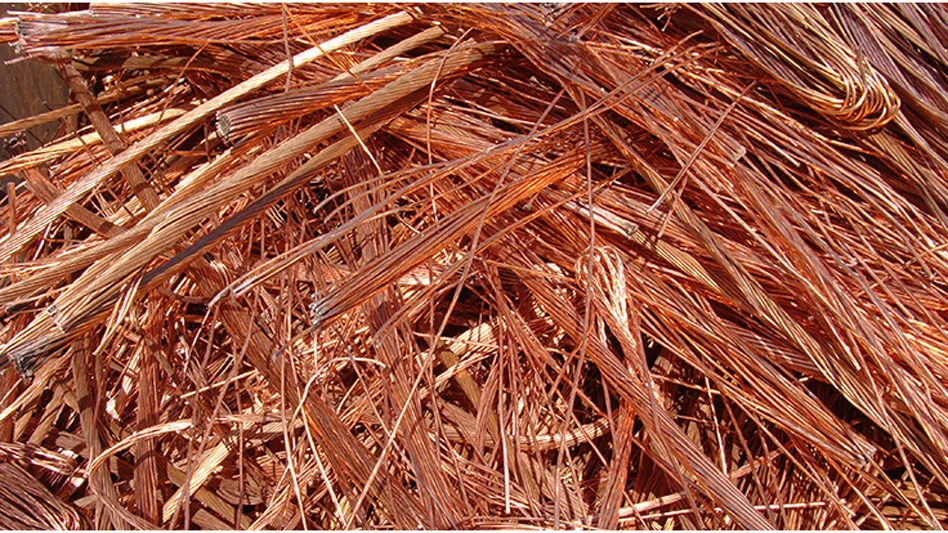
Recycling Today archives
The United States Geological Survey (USGS) has sent letters to members of Congress indicating it does not intend to add copper to its list of critical minerals.
Among the legislators contacted was Rep. Robert Latta of Ohio, who received a letter from the USGS dated May 1. In that letter, USGS Director David Applegate writes in part that the agency’s latest statistics indicate “imports of refined copper decreased in 2022 even as domestic copper consumption increased.”
Applegate notes, however, that net import reliance for refined copper increased from 2018 to 2021.
“In the [USGS] analysis for the 2022 list of critical minerals, the USGS assessed copper as having a relatively high economic vulnerability score, indicating that the U.S. manufacturing sector is vulnerable to a supply disruption, but this vulnerability was mitigated by a relatively low U.S. net import reliance on foreign supplies and a diversity of foreign supply sources," he says.
Applegate portrays an American copper sector that maintains some level of domestic capacity while relying on long-term allied and trading partners for most of its imported red metal.
The USGS estimates 1.3 million tons of recoverable copper were mined last year, led by Arizona. Applegate says the U.S. has multiple domestic options for downstream smelting and refining of that ore to convert it to copper.
“The U.S. has 25 operating copper mines, two smelters, two electrolytic refineries and 14 electrowinning facilities," he says, though he does not clarify to what extent any of those facilities are scrap-fed secondary plants or whether he is including recycled-content facilities being constructed in states including Georgia and Kentucky.
Regarding imported red metal, Applegate says an observation from the McLean, Virginia-based Copper Development Association (CDA) that more than half of the global supply of refined copper is produced in China, Russia, North Korea and Iran, “while factually correct, is not directly relevant to the copper supply of the United States.”
According to USGS statistics, imports of refined copper to the U.S. “are not dependent on any of the countries cited,” Applegate writes. “American imports of refined copper come predominantly from Chile, Canada and Mexico, reliable trade partners with whom the U.S. has free trade agreements.”
The effort to have copper added to the USGS critical minerals list has come from several corners, with the CDA having conducted its own analysis to demonstrate the need for the action.
CDA President and CEO Andrew G. Kireta Jr. says the group is not convinced by the USGS arguments. “Despite clear data showing that copper’s supply risk score is now above the threshold for automatic inclusion on the 2022 Critical Minerals list, USGS sent well-crafted letters to a bipartisan group of congressmen and senators filled with misleading arguments that were not part of its own official 2022 methodology, or consistent with the spirit or letter of the law, to justify a decision to forego immediately adding copper to the list,” he says.
"This decision was made even though Secretary [of the Interior Debra Ann] Haaland has the authority given to her by statute to add copper to the list without waiting for the next update in three years.”
Kireta and the CDA say the U.S. should follow the lead of the European Union, where copper was recently added to its proposed Critical Raw Material and Strategic Raw Material lists based on forecasting future supply and demand projections.
The letter from the USGS to Latta can be found on here and the CDA response here.
Latest from Recycling Today
- EPR implementation working group adopts nationwide focus
- CPM Crown to open European operations hub
- Mardi Gras sustainability initiative collects 14K pounds of recyclables
- Reju selects site for French textile recycling facility
- Hydro’s earnings decrease year over year
- Republic Services appoints Ian Craig to board of directors
- Phoenix Public Works Department proposes solid waste rate increases
- REalloys adds general to executive ranks





